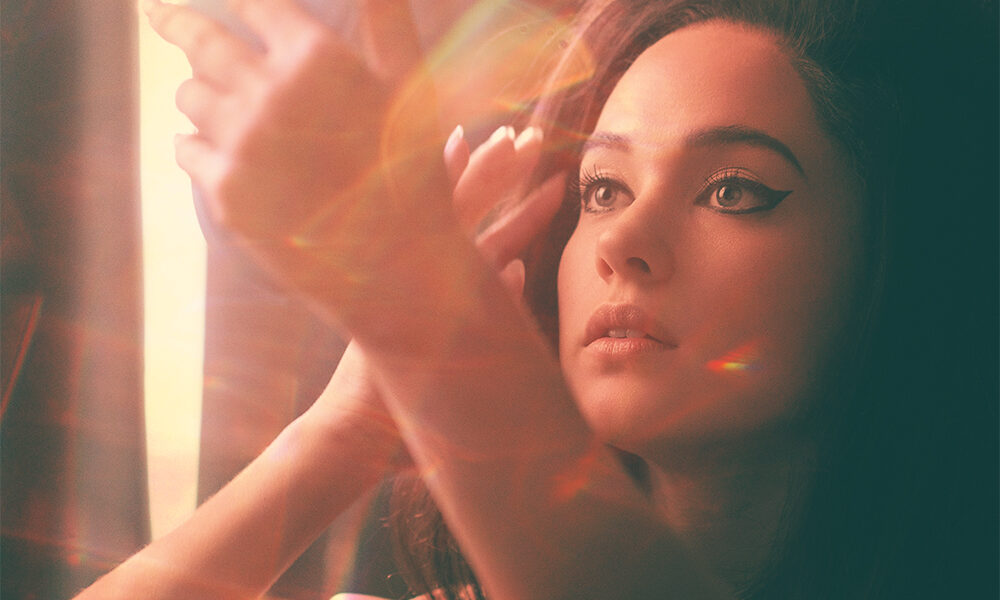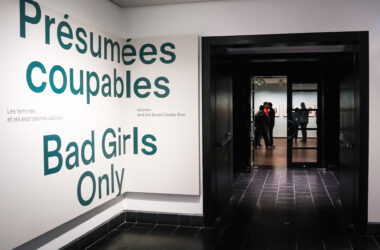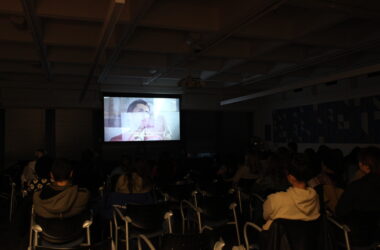Spoilers ahead for Priscilla
Sofia Coppola’s latest cinematic endeavour, Priscilla, explores the lesser-known life and story of Priscilla Presley. The film is based on Priscilla’s autobiography Elvis and Me. While numerous portrayals of Elvis Presley cast the rock-and-roll icon in a positive light—such as Austin Butler’s portrayal in Elvis (2022)—Coppola’s film provides a nuanced take on the couple’s intricate romantic dynamic. Despite Priscilla herself serving as a producer on the movie, the film drew criticism from some family members, including her late daughter Lisa Marie, who feared it would tarnish Elvis’ reputation. But why should women remain silent to preserve the legacies of abusive men? While acknowledging Elvis’ violent and controlling behaviour towards Priscilla (Cailee Spaeny), the film presents something beyond a simplistic, black-and-white narrative. Instead, Priscilla depicts their relationship as a nuanced tapestry woven with threads of love and solace, recognizing the complexities that permeate even the most intimate bonds.
The brilliance of the casting choices in the film becomes evident in the face of initial scepticism. Despite critics questioning Jacob Elordi’s resemblance to Elvis and his limited knowledge of the icon, gleaned mainly from Lilo and Stitch, Elordi transcends doubt with a performance that radiates authenticity. While subtitles may have been beneficial to understand the accent, Elordi clearly worked hard to perfect Elvis’ unique mannerisms without needing to undergo intense method acting. His ease and adoption of Elvis’ characteristics in the role have undoubtedly left Austin Butler shaking in his blue suede shoes. Coppola’s choice to cast Elordi is particularly shrewd, tapping into his contemporary heartthrob status to replicate the admiration girls of the past felt for Elvis. Cailee Spaeny—in one of her first major roles—displays excellent acting prowess, deftly manipulating her facial expressions and physicality throughout the film. Her non-verbal acting contributes to the authenticity of Priscilla’s character, elevating the narrative. Through Coppola’s lens, the film unearths the challenges of being in the public eye, dispelling the glamorous illusions that often cloak the life of a rock star’s girlfriend.
Coppola employs clever narrative techniques to illustrate the jarring age gap between Priscilla and Elvis, underscoring the disparities in their respective worlds. Their initial encounter occurs when Priscilla is a 14-year-old, and Elvis is 24. Priscilla neglects her algebra homework, opting to compose affectionate letters to her famous boyfriend. While her peers concentrate on prom dates, she delves into tabloids to uncover details about Elvis’ affairs. At 24, Elvis assumes an uncomfortably paternal role, orchestrating Priscilla’s relocation to a Catholic school in Memphis, blurring boundaries between boyfriend and guardian. This dependency becomes a coercive force, compelling Priscilla to endure his mistreatment and abuse within the relationship.
Complementing its visual elements, the film’s soundtrack emerges as a powerful and integral component of the cinematic experience, mirroring Priscilla’s diverse emotional states throughout the movie. One particularly noteworthy moment is when she makes the courageous decision to leave Elvis, and Dolly Parton’s “I Will Always Love You” echoes in the background. This song choice goes beyond beauty. The lyrics refer to what Elvis told Priscilla when their divorce was finalized at the courthouse, but the song also gives a symbolic nod to Dolly Parton’s autonomy. It’s a well-placed reminder that Dolly never allowed Elvis to record this iconic song, preserving her artistic independence and royalties. This deliberate selection amplifies the film’s message, celebrating Priscilla’s emancipation from her abuser and underscoring her newfound agency to share her own narrative.
Ultimately, Sofia Coppola’s Priscilla offers a nuanced perspective on the relationship between Priscilla and Elvis Presley through the former’s eyes. The impeccable casting choices and soundtrack breathe life into the characters, capturing the tumultuous emotions of Priscilla’s journey. The film emerges as a poignant cinematic achievement, urging audiences to reconsider the untold stories behind cultural icons and challenging the perpetuation of idealized narratives.
Priscilla is now playing in theatres.








